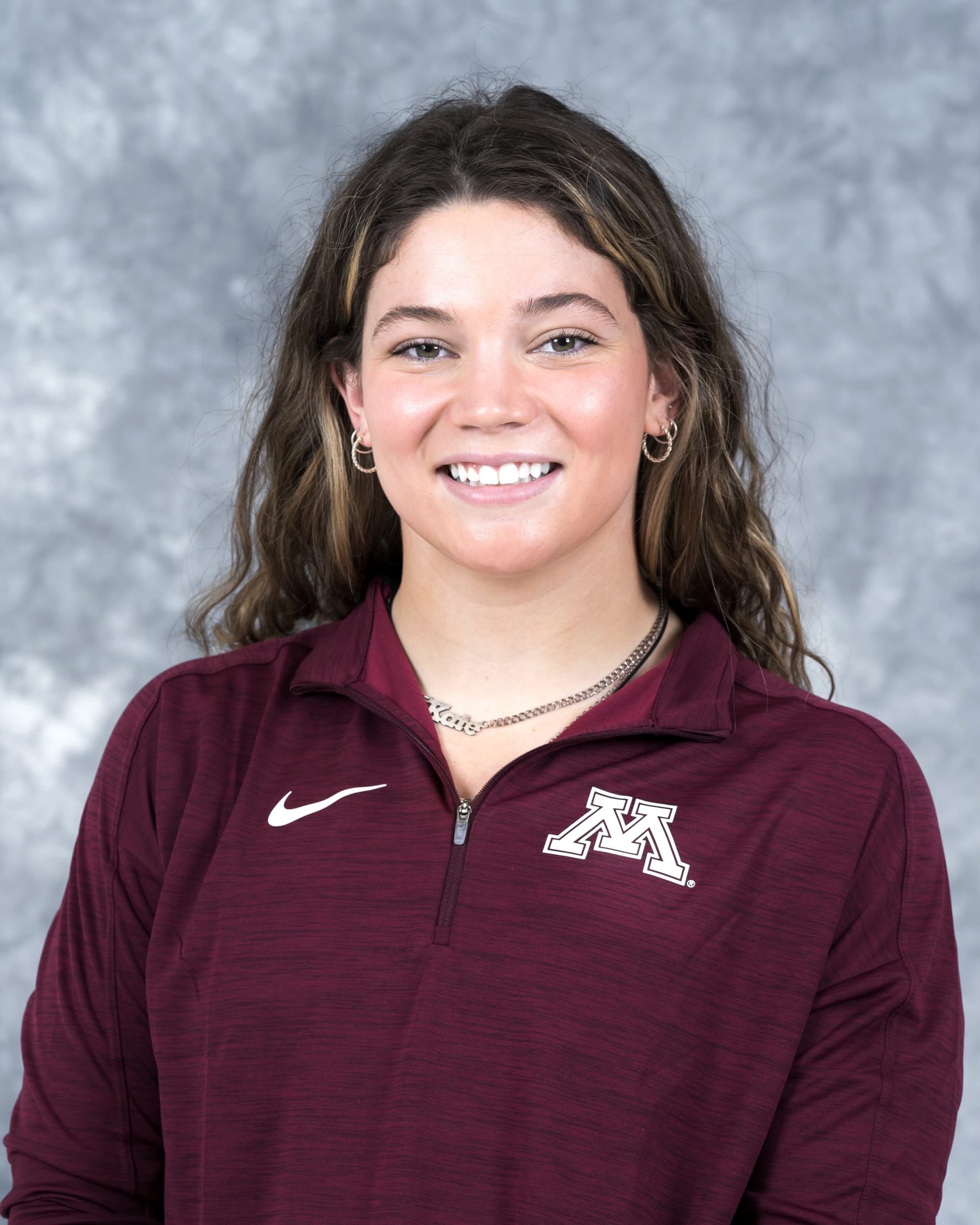Image: Kate Sullivan, a member of the Gopher women’s swim team and a senior at the University of Minnesota. She shared how anxiety impacts her both personally and athletically. (Courtesy of Kate Sullivan)
Kate Sullivan, a fourth-year student on the swim team at the University of Minnesota, is studying sociology of law. She was diagnosed with anxiety and panic disorder during the springtime of her senior year of high school.
“Coming to college was kind of an adjustment. I had recently found out what my mental health issues were, and I’m originally from Kansas, so it was a big move for me to come up here and be away from my family. So it was just kind of learning to adjust to that, while also being a new college student. And my freshman year, I was prescribed medication that I started taking. I’ve been on it since then… If I am not actively making sure that I’m on top of things, that’s usually when I start to get very anxious and just overwhelmed with too much going on. Usually, the anxiety, if it starts to build up too much, turns into panic attacks. So it’s not much of an issue anymore as I’ve been on medication, but there are flare-ups every now and then. Especially when I’m just not really being open with my roommates and my family about how I’m doing… So it’s definitely just learning to balance it with schoolwork. I’m a swimmer, so that adds some stress to that too.
It can occasionally affect my relationships with other people. Just because in dealing with anxiety, I’m not the best at explaining my emotions and how I’m feeling, and that causes a little rift in relationships. Because… It just kind of seems as if I don’t trust people. But that’s not the issue that I’m dealing with. I’m just always worried about what people think of me and how people will perceive me, and that just causes a lot of anxiety. Learning to be able to communicate when I’m anxious is something I had to learn. Just, you know, telling people when situations are making me anxious, or things that they say or do that are triggering me. So just like learning how to make those connections with people while also understanding my anxiety and not letting that cause a separation between my relationships with other people.
Being a student-athlete, I get free sports psychology. So I’ve actually seen a sports [psychologist] since my freshman year… I would say sports [psychology] is very much more angled towards my anxiety when it comes to athletics. So on the side, I do see my own therapists that I’ve had for a while now… I really liked sports [psychology] because anxiety definitely manifests itself in my own personal life, but also athletically. I find myself getting very anxious that I’m going to disappoint my teammates and my coaches, and just learning to find a balance with anxiety and swimming… So having that available to me just to be able to talk about my anxiety when it manifests itself in swimming is really awesome.
[Things that help when struggling with anxiety and panic disorder] are a lot of breathing exercises. Just because when I feel myself getting those anxiety tendencies or like feeling like I’m gonna have a panic attack, it’s really finding a way to either meditate to calm myself down. Or do some breathing exercises that help me study my breathing so it doesn’t get to the point where I am having a panic attack. So really like meditating, breathing, and listening to music are all things that really help me calm myself down.
I feel like mental health is a much bigger topic than it was when I was younger, and I feel like it should almost be the other way around. We should definitely learn about mental health and how to work around it, so by the time we get to college, we know how to handle ourselves… When I came to college, it kind of all hit me at once… I feel like education when we’re younger is super important.”
This interview has been edited for length and clarity.
Interview conducted by Mikayla Scrignoli.
